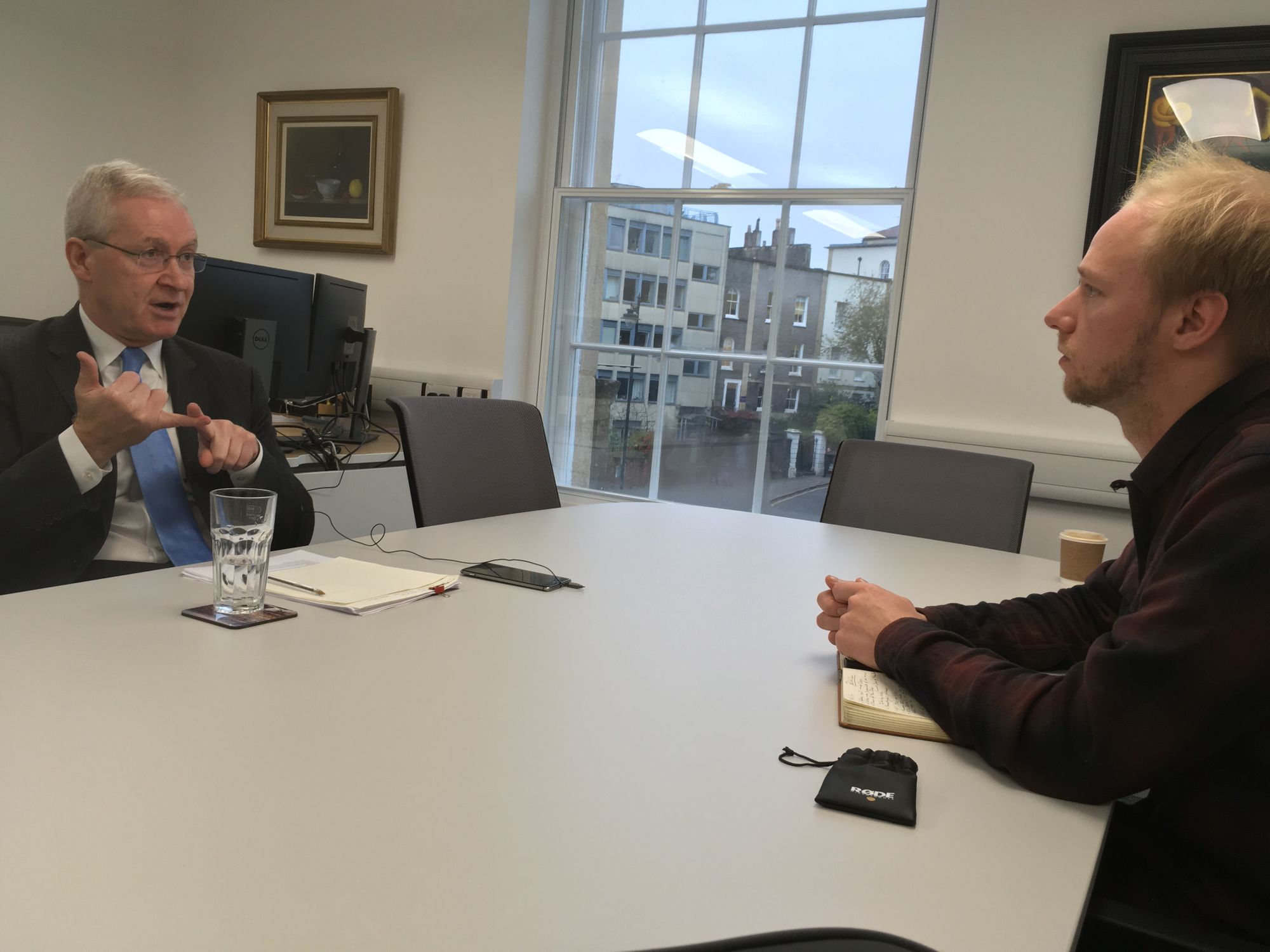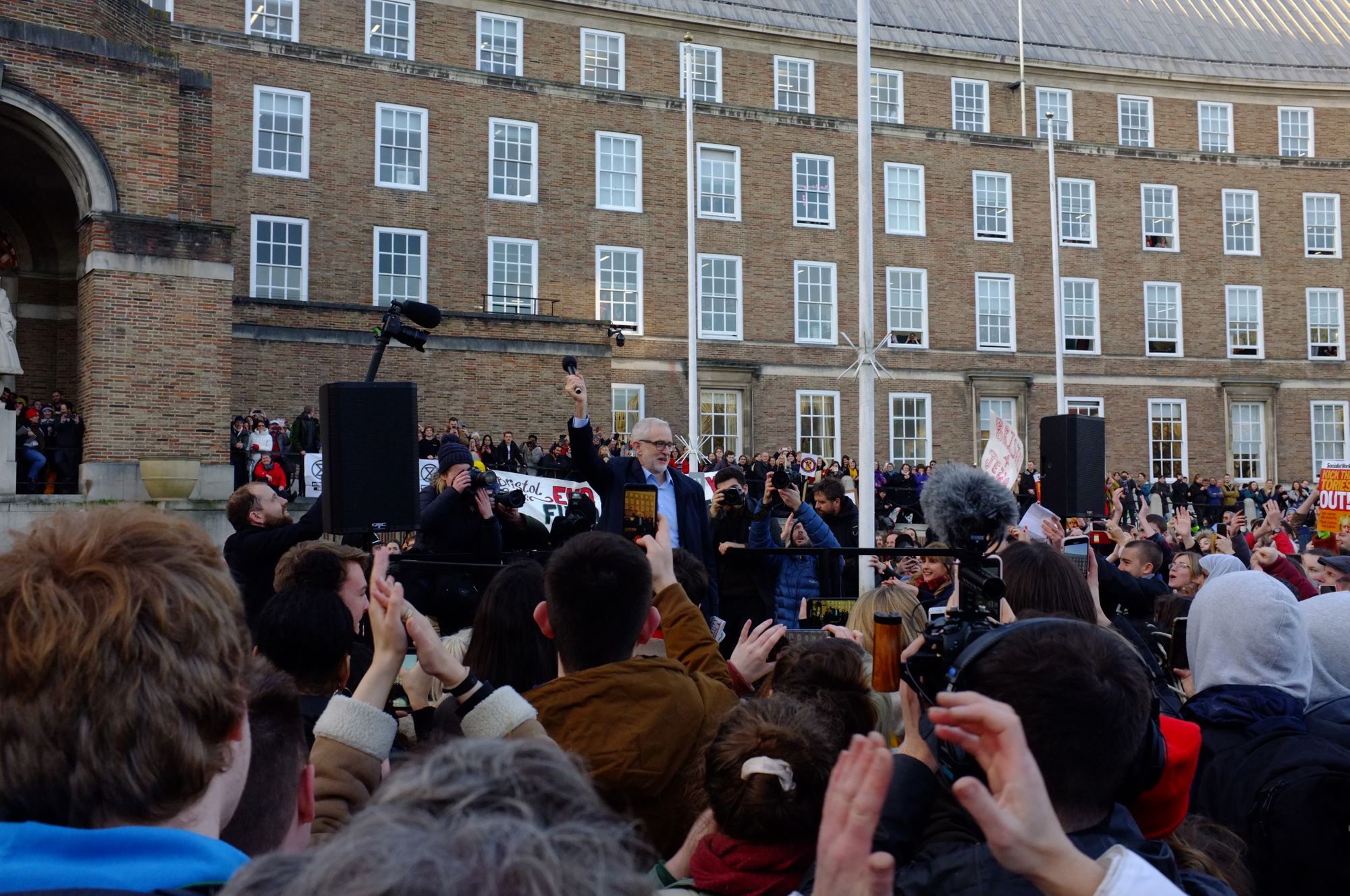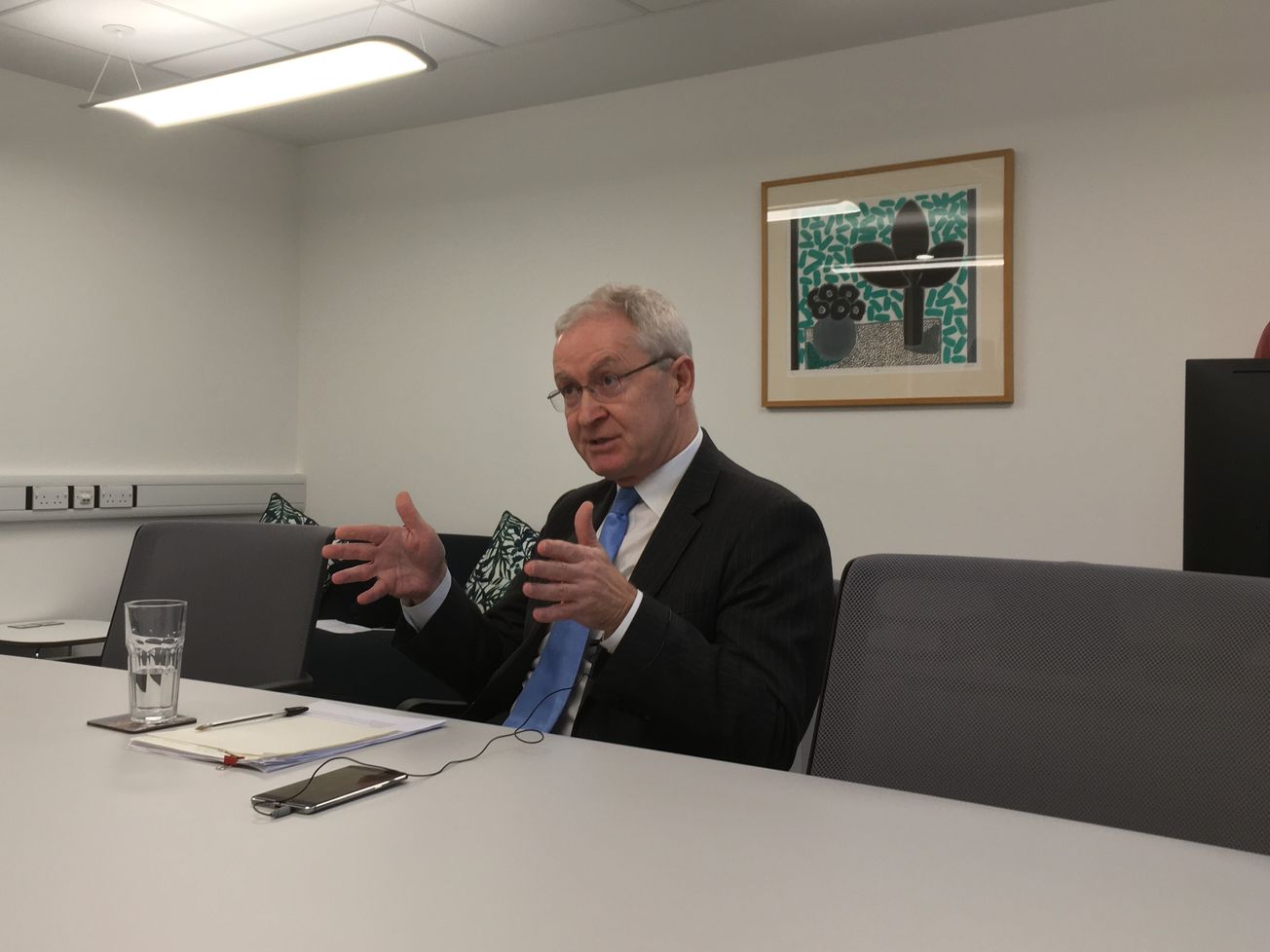By Patrick Sullivan, Co-Editor-in-Chief
The University of Bristol Vice-Chancellor touches on Brexit, the general election, and wider issues in a long interview taken the week before staff strikes affected teaching.
When I first started studying at the University of Bristol in 2015, UK universities were in peak development as the Government lifted limits on student intake three years after the rise of tuition fees to £9,000 per year. Also moving to Bristol that September was Professor Hugh Brady, formerly of University College Dublin and Melbourne University, taking up his role as Vice-Chancellor. In the four years since, as Bristol continued – and continues – to grow both in size and reputation, students and staff at the University have seen a number of complex issues develop too.

Since my second year started in 2016, there have been several student suicides and the University have had to review and further fund mental health services to try to meet the greater demand. In early 2018, there were months of staff strikes as University and College Union (UCU) members reacted to changes to pension policies and their view that universities have failed to improve staff pay and conditions. 18 months later, and UCU are striking again from 25 November to 4 December citing the same reasons.
| Bristol VC Hugh Brady on staff strikes: ‘Students should feel comfortable crossing the picket line’
‘The theme since I've been Vice Chancellor has been uncertainty, particularly in the external world. Uncertainty around Brexit: will it happen and what type of deal if any will be done. Uncertainty around immigration policy, uncertainty around the financing of higher education and it goes on and on.’
Brady speaks to me on the morning of Thursday 21 November 2019, four days before the planned UCU strikes started, as he invited the local press to speak to him on the issue. I am first up at 09:00 sharp, with a coffee in-hand, ready to get Brady’s view on not only the crucial strikes, but the turbulent December ahead. With an upcoming general election affecting the University so greatly, how do they plan to provide high quality education and research for years to come?
‘If we are to compete with the very best universities in the world, we have to be able to offer a comparable package and have certainty around the amount of money that’s available per student. First and foremost, we need the funding level to be appropriate to be up there with the very best in the world so we can offer our students an equivalent experience to the very best universities in the world. And if we don't do that, we won't have the professionals, entrepreneurs, essentially the talent pipeline we need for the UK to compete over the years to come.’
| Jeremy Corbyn addresses large crowd on College Green
Brady himself recognises there is only so much the University can influence. University funding is seen as a ‘political decision’ as the Labour Party and Conservatives take two opposite standpoints ahead of the national vote on 12 December. Labour’s Shadow Education Secretary, Angela Raynor, phoned in to a special episode of the Radio 4 Today Programme on 12 November recorded in Wills Memorial Building, announcing ‘if [Labour] get into power on December 13, we will abolish tuition fees, no ifs, no buts’. On the same show, Brady advised that policy may not be the best course of action. When we spoke the following week, he went into the details of the University’s own policies.
‘Our response has been to really focus on what's within our control at the University. [That has been] very significant investment in the student experience in terms of the curriculum, wider support, mental health, and our physical infrastructure. And similarly, [we have invested] on the research side, particularly reacting to the challenge and opportunity set by the government's industrial strategy.

‘Having said that, we're doing everything we can outside of the institution to ensure that there is a good outcome to all of the other external factors. In terms of Brexit, we have been advocating that if Brexit does happen, we should have as full an association as possible with the EU. [The University would benefit from this because], for example, students can continue to have access to the Erasmus Plus program, staff can continue to be able to play their full part in Horizon Europe, and we can still be full partners in the European Research Council, which is so important as a source of funding for our top researchers.
‘I've been encouraged that the government have reacted positively to our appeals to restore the two year post-study work entitlement for international students. That's really important. In a recent recruitment trip we took to India, it was very helpful to be able to say that the restoration of that particular element was on the cards.’
The Vice-Chancellor has been individually subjected to wide, heartfelt student criticism as the community here at Bristol continues to support each other on the campus issues of mental health and staff strikes. On many social media, Hugh Brady is a name found in several Bristruths and playful memes, most deploring the University’s attitude towards its students and service. Yet, sitting at a boardroom style table in his Beacon House office, Brady is quietly spoken and not desperate for the limelight, reflective of the heavy involvement of his team of Deputy and Pro-Vice-Chancellors in the operation of a university catering to more than 20,000 students.
| ‘Underpaid, under-protected and overworked’: an open letter from striking staff to the University
| Hugh Brady: Universities ‘cannot be expected to replace the NHS’
The latest UCU strikes are the issue of the moment. Hourly paid staff have since written an open letter of demands to reduce the impact of casualisation on their working lives, and there have been marches and pickets across campus and central Bristol. Hugh Brady himself could be seen on the picket line on the first day of action. When we speak, however, he urges ‘students to continue their studies as they normally would’ and says they ‘should feel comfortable passing the picket line’.
I ask him what he would do if staff had similar strikes while he was a Medicine student at University College Dublin.
‘Between 1976 and 1982, I don't think we had one strike at the University. Now, that might be a judgment on our activism or lack thereof but we didn't so I've got no experience really to call upon.’
So here we are with the Vice-chancellor of @BristolUni Hugh Brady on the picket line!
— Matthew Brown (@mateobrown) November 25, 2019
What a change from last time.
We look forward to your continuing support Hugh. pic.twitter.com/zXgzGCWUjV
His answer, while clearly trying to remain partisan, is a reminder of the extraordinary circumstances that have led to a second set of strikes in less than two years. Universities across the country are swelling with students. Students accepted at UK universities rose from 390,890 in 2006 to 532,265 in 2015, when Brady started his post, and has risen yet to 541,240 in 2019 despite the number application being lower now than four years ago. There have been reports that less established universities are on the verge of financial collapse and any decision to remove tuition fees could leave many unable to fund their services.
The University of Bristol is certainly not one of those at risk. While a no-deal Brexit and the abolition of tuition fees would cause issues, financially, Bristol is one of the more stable universities in the UK. Brady describes the University as ‘among the best in class’ at looking after staff. With regards to the issues of pay and pensions which have led to the strikes, he says they offered to meet staff demands 18 months ago and implied the reluctance of some of the other 59 universities involved in the negotiations has prevented a clear resolution.
‘Most of our staff will be aware that we're part of a national collective bargaining process. We argued for a higher increment of University pension contribution than has been implemented nationally. We have advocated that there should be a multi-annual deal where pay increases are linked to inflation. We think that's fair, and that gives staff a certainty.
‘We argued for a higher increment of University pension contribution than has been implemented nationally.’
‘I suppose we're all too conscious of the fact that unfortunately, most institutions did not feel that they could go with that higher settlement. That would result in loss of services and job losses [for other universities], so that makes the situation feel particularly complex.
‘I certainly hope [the strikes won’t become regular]. And I think coming out of the last strike, Bristol was was seen as one of the contributors to the resolution of the strike. We hope that when the joint expert panel completes their report, which will probably be in the first quarter of 2020, it gives us a roadmap through which to develop a sustainable plan for the future so this doesn't keep happening year on year.’
Just because we put our placards back in the #PicketWagon for now doesn’t mean we are going away!
— Vicky Blake UCU Vice President (Zenscara) (@zenscara) December 4, 2019
Re-balloting has begun. We’re working to contract. We will #UCUstrike again in the new year if we have to—but, dear employers, we’d rather be at work. Sort it out. #UCUStrikesBack pic.twitter.com/JLwO9tbhvq
For now, it is difficult to predict the future of universities. Regardless of how they resolve wider staff issues of pay equality, casualisation, and workload, they continue to operate in the face of the current political chaos and growing student numbers. The idea of the ‘student experience’ is one which is very much subject to change.









